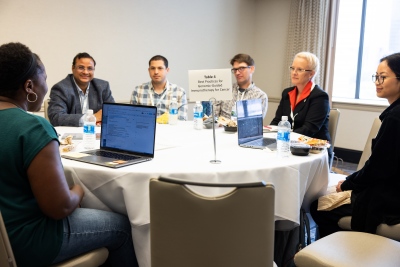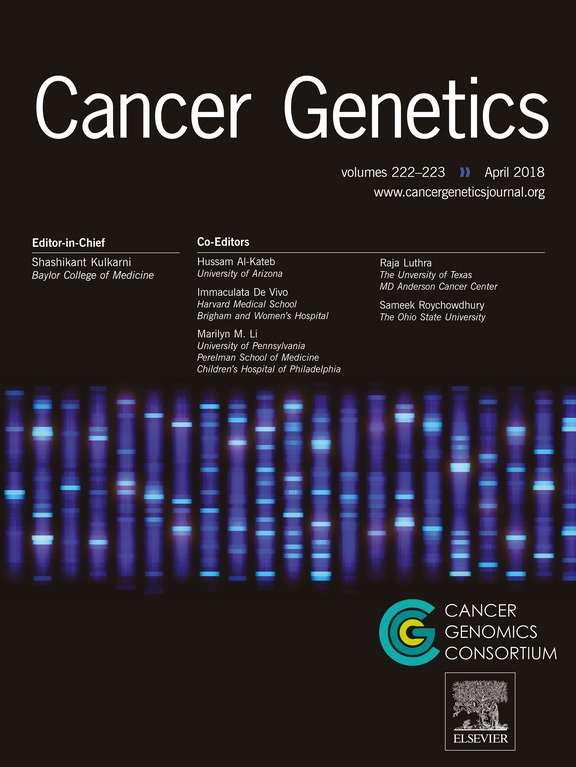2024 Round Table Sessions
2024 Round Table Sessions include the following topics from which participants may choose during registration:
Implications of FDA’s proposed rule regarding laboratory developed tests (LDT)
Description: Historically the FDA has generally exercised enforcement discretion over most LDTs. The newly proposed rule seeks to amend the FDA’s regulations to make explicit that IVDs are devices under the Federal Food, Drug, and Cosmetic Act, including when the manufacturer of the IVD is a laboratory. What will be the implication of this rule change for the clinical laboratories?Clinical applications and guideline updates for liquid biopsy
Description: This topic will focus on the current and potential use of application of liquid biopsy (including circulating tumor cells and DNA) for cancer early detection, resistant mutation detection, and measurable residual disease detection for both hematologic neoplasms and solid tumors. This topic will also cover currently available liquid biopsy assays and their specifications and applications.Cancer pharmacogenomics: genomic alterations and germline variance in cancer drug resistance
Description: This topic is for examining the genomic mechanisms underlying acquired resistance to targeted therapies and immunotherapies in cancer treatment. It also covers germline variances for efficacy and susceptibility to adverse effects of cancer drugs.Artificial Intelligence (AI) and Machine Learning (ML) in clinical genomics
Description: This topic will explore the applications of AI and ML in data analysis, interpretation, and decision support for cancer genomics. This roundtable may also advance to a workgroup to establish guidelines for implementation and validation of AI/ML tools.Innovations in genomic technologies for low-resource settings
Description: This topic will explore cost-effective and accessible genomic technologies for cancer diagnosis and treatment in resource-limited environments (including underdeveloped countries, rural hospitals, small pathology groups). This topic might also cover that disparity and related solution for access to genomic technologies, as well as implementations of new classifications (such as WHO 5 and ICC) and clinical guidelines (such as NCCN guidelines) in low-resource settings.Laboratory automation and changes in testing practices to address laboratory workforce challenges and Workforce readiness for cancer genomic laboratories
Description: This topic is to cover preparation of lab staff to be up-to-date, as many have been in the workforce for years, as well as best practices and success stories for cross-training. This roundtable may also advance to a workgroup to establish guidelines for staff training and networks for cross-training. It will also discuss differences in laboratory ordering arising from changes in insurance and new methodologies.Implications and solutions for clinical cancer genomics from racial and ancestral disparity in genomic data and research
Description: Historically, non-European descent patients have higher rates of VUS calls due to lack of sequenced reference genomes and genetic studies. In this topic, the participants will discuss the practice implications and solutions in variant calls in cancer genomic tests. It may also advance to a workgroup to curate additional references for these underrepresented populations.Complex structural rearrangement analysis with novel technologies
Description: New technologies including OGM, Nanopore, Hi-C, and long read sequencing allows diagnosis of complex chromosomal structural rearrangements in high resolution. This topic will allow participants to share their experience and/or cases. It might also advance to a workgroup to establish a new standard of care for structural variation diagnosis.The clinical application of whole genome/exome sequencing (WGS/WES) and long read sequencing (LRS)
Description: The costs of WGS, WES, and LRS have been lowered recently to permit clinical use in the near future. What will these capacities allow new possibilities in patient care? How should laboratories handle and report the massive amount of additional data of unknown and potential secondary findings? It might also lead a workgroup to explore new modality in reporting.Molecular-based classification of hematologic malignancy
Description: The new WHO5 and ICC classifications for hematopoietic neoplasms included more and more molecular and cytogenetically defined new entities. There might not even be widely-available essays to detect some of the new entity-defining alterations. This roundtable will allow participants to discuss the experience and difficulties in implementing the new classifications for the clinical molecular and cytogenetic laboratories.Clinical utility of measurable residual disease (MRD) monitoring for hematopoietic neoplasms
Description: Molecular MRD status during complete remission is critical for prognostication and transplant decisions for AML (PMID: 29601269, 37647641), acute lymphoblastic leukemia (36453516, 25862561), and myeloma (29222257). High sensitive assays include PCR-based assays and IG/TR V(D)J sequencing. In addition, for cases without available PCR targets, deeper assays from NGS and OGM might still provide valuable MRD information. This roundtable will discuss the implementation of these assays and new laboratory workup algorithms.
Validation of bioinformatic pipelines
Description: This roundtable is for participants to share their experiences in validating bioinformatic pipelines in clinical molecular laboratories. Particularly, it might advance to a workgroup to establish networks for resource sharing and curate libraries of NGS data for laboratories to perform in-silico validations.Integration of molecular and cytogenetic laboratories
Description: Many novel cytogenetic platforms are molecular-based assays, such as microarray, RNA/mate-pair sequencing, OGM, long read sequencing, and Hi-C. This roundtable is to discuss the needed integration of molecular benchwork and interpretation by cytogenetic expertise. In addition, it will also cover issues like sample sharing and workup algorithms between these two then-separated domains.DNA methylation (and gene expression) profiling for molecular subtyping
Description: Tumor classifiers with DNA methylation profiles have become mainstream practice in CNS tumors (29539639), sarcomas (33479225), and hematopoietic neoplasms. Gene expression profiling platforms, such as Nanostring and RNA-sequencing, are also more and more applied to classify T-cell lymphoma (35839444), DLBCL (35947123), and acute lymphoblastic leukemia (30643249). This roundtable will discuss the validation, data transportability, comparability across platforms, preanalytics, libraries of testing data, and other issues for implementation of these profiling platforms in clinical usage.Cytogenetic workup strategy in the era of new genomic tools
Description: Genome scale, gene-level resolution, molecular-based cytogenetic assays, such as OGM, has been more and more widely used in cancer genomic diagnosis. This has shaped the future of clinical cytogenetic practice and even career training. What will be the ideal and cost-saving cytogenetic workup algorithms in the new practice (of different types of hospitals)? What are the future roles of karyotyping and FISH? Will clinicians move towards peripheral blood based workup or disease monitoring? How should the cytogenetic training curriculum be re-shaped?
Germline and somatic variant classification in cancers and clinical use of the ClinGen/CGC/VICC oncogenicity guideline in practice
Description: This roundtable will discuss the clinical use of the oncogenicity guideline (PMID: 35101336) and ACMG variant classification guideline (PMID: 25741868) for variant classification. It will also cover the application of emerging functional studies (e.g. MAVEs [PMID: 27583640]) and multi-omic technology for variant classification in the clinical and workgroup settings.Bioinformatics and data interoperability of clinical cancer genomics
Description: This roundtable will discuss the availability and development of bioinformatic tools and pipelines for clinical molecular laboratories. In addition, it will cover the data interoperability of genomic data across institutes for consultation services or quality assurance purposes with EHR standards (e.g., HL-7, FHIR, mCODE).- Cancer genomics in underserved populations and communities





